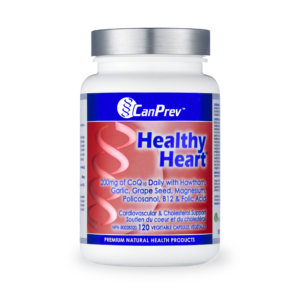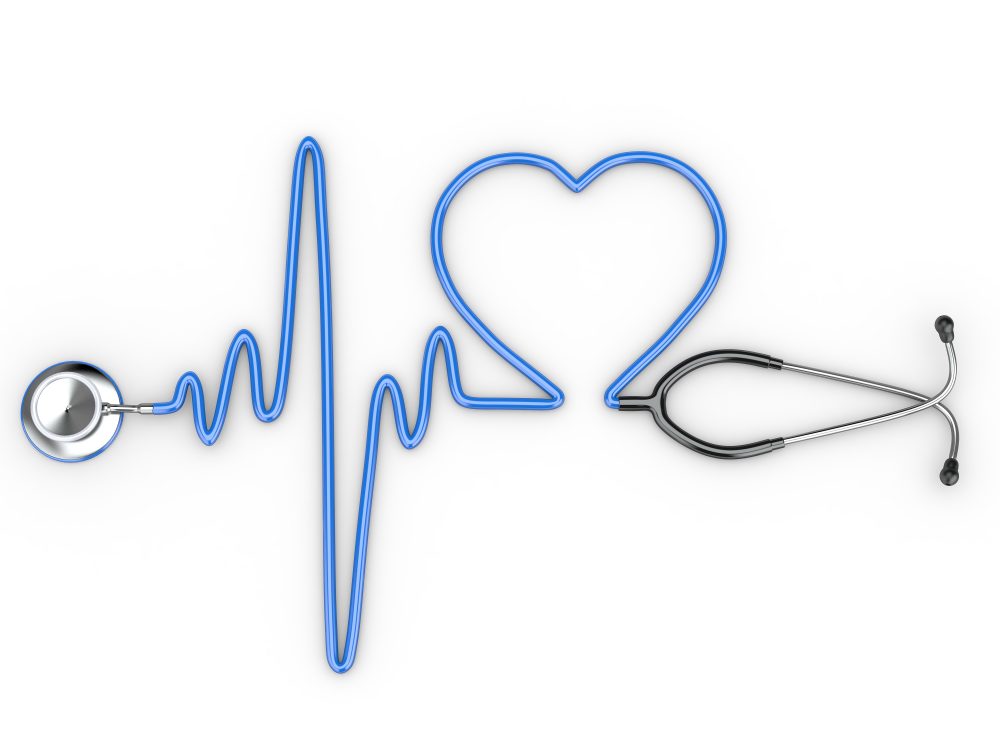As a woman, are you committed to living a heart-healthy lifestyle? While we might think of older men when we hear “heart problems”, research tells us it’s time for women to look after their hearts, too.
According to the Heart Research Institute, heart disease is the number one cause of death in Canada for women over 55. What’s more, Canadian women are 16% more likely than men to die from the result of a heart attack. One of our current problems when it comes to women’s heart health is that 2/3 of heart disease clinical research focuses on men.
So what does that mean for you?
It means that, until more women-centered clinical research is completed, it’s essential to educate yourself on natural, safe ways to care for your cardiovascular system and live heart-healthy every day. This starts with keeping track of your cholesterol levels. Read on for what you need to know, plus our tips and recommendations to get you started.
Women, cholesterol, and heart disease
Heart disease is a women’s issue. Some research estimates that heart attacks are more deadly for women in part because our hearts are affected by the hormonal changes of the menstrual cycle, pregnancy, and menopause (Looking to learn more about how to navigate menopausal symptoms? Click here). Physiological differences also exist. For instance, women’s hearts and coronary arteries are smaller than men’s, with faster resting heart rate.
While there are many risk factors involved in heart disease in women, like high blood pressure, diabetes, smoking, and obesity, cholesterol is a factor you need to monitor for heart health – especially once you reach menopause. That’s because high blood cholesterol levels raise the risk for heart disease. And menopausal women are at an increased risk of high cholesterol due to the drop in estrogen production that happens during this time.
Higher estrogen levels are associated with a rise in high-density lipoprotein (HDL) cholesterol, which offers protection against heart disease, along with a decline in total cholesterol, low-density lipoprotein (LDL) cholesterol levels, and triglycerides. (Confused about cholesterol types and what they really mean? We’ve got you covered below, so read on!). To nurture heart health before, during, and after menopause, you want to keep your cholesterol levels within a healthy range.
Your cholesterol primer
Let’s dig into what cholesterol is, and more importantly, how it might affect women’s health.
Cholesterol is a waxy substance found in every cell in the body. It’s both made by the body and absorbed from food. Cholesterol is essential because your body needs it to make important steroid hormones like estrogen, progesterone, and vitamin D. Additionally, the brain needs cholesterol and without enough of it, you might be at an increased risk for depression, an independent risk factor for heart disease. Cholesterol is also used to make bile acids in the liver. In other words, cholesterol isn’t inherently bad.
But here’s the thing: excess cholesterol in the bloodstream can clog the arteries. These deposits (known as plaques) can result in atherosclerosis or hardening of the arteries – which is a major cause of heart attacks and other cardiovascular problems.
Your total cholesterol level is a measure of the amount of cholesterol circulating in your bloodstream, which is divided into two major cholesterol types along with triglycerides:
LDL cholesterol: LDL or low-density lipoprotein. This is known as the “bad” cholesterol, which contributes to plaque buildup in the arteries as it undergoes free-radical damage. LDL rises after menopause in many women.
HDL cholesterol: HDL or high-density lipoprotein. It has been called “good” cholesterol because research suggests it helps the body dispose of LDL cholesterol. Reduced HDL cholesterol might be a more important heart disease risk factor for women than for men. And low HDL levels in women are one of the first measures of insulin resistance (another risk factor for heart disease).
Triglycerides: Triglycerides are the most common form of fat in the body. High levels of triglycerides could be a greater risk factor for heart disease in women compared with men. High triglycerides might be caused by conditions like hypothyroidism and PCOS and are associated with excess abdominal fat and high blood sugar, because the liver stores excess glucose as triglycerides.
Women-specific tips for healthy cholesterol levels and heart health
A heart-healthy lifestyle can go a long way toward keeping cholesterol levels in check and preventing heart disease in women. Work with your healthcare practitioner to track your cholesterol levels and make appropriate changes to your diet and lifestyle if your total cholesterol levels are high, if HDL levels are low, or LDL levels are elevated. Diet-wise, choose healthy fats and lower cholesterol intake from foods by opting for plant-based swaps whenever possible. If you’re overweight, do your best to shed the extra pounds.
levels and make appropriate changes to your diet and lifestyle if your total cholesterol levels are high, if HDL levels are low, or LDL levels are elevated. Diet-wise, choose healthy fats and lower cholesterol intake from foods by opting for plant-based swaps whenever possible. If you’re overweight, do your best to shed the extra pounds.
In addition to following healthy lifestyle habits, try adding nutritional supplements like CanPrev’s Healthy Heart to your health regimen. This formula combines an impressive 200 milligram dosage of the heart-specific antioxidant Coenzyme Q10 with a rich blend of polyphenols, herbs and vitamins, proven to aid in the maintenance of healthy cardiovascular function.
Last but not least, talk with other women who are in a similar situation to see if there are other ways you can support your heart. All of these are natural pathways to a healthy heart.
We hope these tips help you to get a better understanding of the importance of cardiovascular health and how you can follow a heart-healthy lifestyle.







Leave A Comment